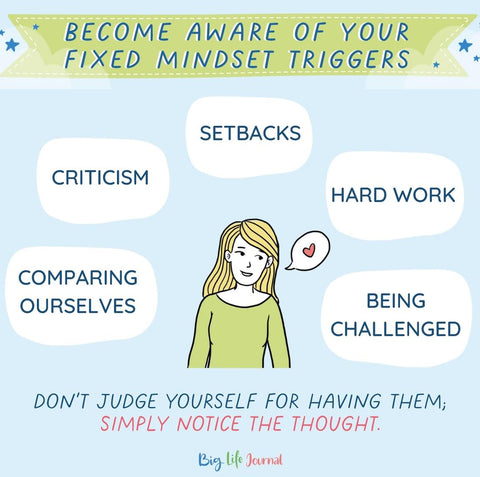
Fixed Mindset Vs. Growth Mindset Quiz
Have you ever wondered whether you have a fixed mindset or a growth mindset? We’ve put together a fun, simple fixed mindset vs. growth mindset quiz to help you determine your current mindset. At the end of this post, we’ve also included some helpful tips for cultivating a growth mindset.
Your mindset impacts your relationships, learning, and overall well-being and success. It helps you achieve your full potential or holds you back from reaching it. And if you want to foster a growth mindset in children, it’s essential to have a growth mindset yourself.
People with a fixed mindset believe talent, intelligence, and other qualities are innate and unchangeable. On the other hand, people with a growth mindset believe effort and practice over time make a meaningful difference. A fixed mindset contributes to limiting beliefs; a growth mindset empowers beliefs.
Before you continue, we thought you might like to download our FREE Your Words Matter Volume 2 Kit. With these 10 one-page parenting guides, you will know exactly how to speak to your child to help them stand up for themselves, be more confident, and develop a growth mindset.
Our fixed mindset vs. growth mindset quiz, created for adults and teens, consists of 15 questions. Simply choose the answer that corresponds with how you feel about the statement.
No matter what mindset you have, the good news is you have the power to change it! Here are some actionable tips for shifting to a growth mindset.
Read about how the brain works.
If you’re a growth mindset skeptic, it’s helpful to understand neuroscience supports this idea. Your mindset shift may come more easily if you read up on concepts like neuroplasticity, which explains that the neural pathways in the brain are constantly changing in response to our experiences. The brain is like a muscle--the more you practice, the stronger the brain becomes, and the more automatic the process.
Become aware of your fixed mindset triggers.
Many of us have a fixed mindset in some areas and a growth mindset in others. Or we may have specific fixed mindset triggers. These could include criticism, setbacks, or comparing ourselves to the success of others. Practice becoming aware of when you have fixed mindset thoughts (don’t judge yourself for having them; simply notice the thought.). Awareness is the first step to making a change.

Replace the fixed mindset thought with a growth mindset thought.
As you begin noticing your fixed mindset thoughts (and their triggers), try replacing them with a growth mindset thought. For example, if you think, “This is too hard,” consider, “This challenge is a great learning opportunity.” Or if you notice yourself thinking, “I’ll never be as successful as her,” shift to, “I’m not as successful as I’d like to be yet.” If you have a difficult time fully making these shifts, start by simply questioning your fixed mindset thoughts: “What if that’s not true?”

Take action.
Since the brain learns and grows through experience, train your brain by taking growth mindset actions. Push yourself to try new things, take on challenges, and persist through failure and setbacks. Ask yourself, “What’s the worst that could happen? And if the worst thing happens, how can I respond?” Generally, this practice shows you that even the worst-case scenario isn’t so bad after all.
Focus on the process.
Instead of focusing solely on outcomes, celebrate the process too. Small steps toward a big goal matter. Incremental positive change makes a difference. Embracing the process helps you build confidence and develop a growth mindset.
If you need some tips on how to encourage a growth mindset in your child, don't forget to download our FREE Your Words Matter Volume 2 Kit.

Ask yourself what you can learn from your mistakes.
Mistakes are inevitable. If you aren’t making mistakes, you aren’t taking risks or challenging yourself. Look into the backstory of just about every successful person and you’ll find examples of major mistakes and failures. Yet because they didn’t quit, and they used these mistakes as learning opportunities, they became extremely successful. Next time you make a mistake, ask yourself, “What can I learn from this?” Begin reframing “mistakes” as “learning,” and you’ll cultivate a growth mindset that propels you toward success.
Looking for additional resources? Make growth mindset a family affair by using our Big Life Journal with your children. Developing a growth mindset is a process, so give yourself grace along the way, and enjoy the journey!

